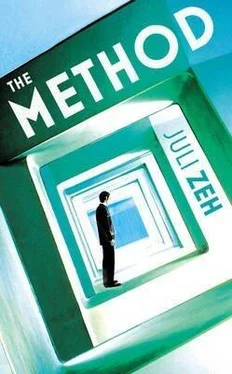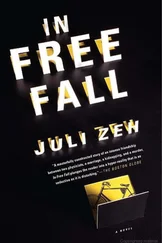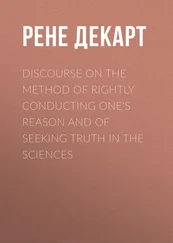Mia laughed out loud. ‘In other words, you live for yourself and die for others,’ she said.
‘That’s the beauty of it,’ replied Moritz. ‘It would be disastrous the other way round. But remember, Mia: if you live for yourself, you need to swerve every now and then to avoid other people. You know what happens when you bump into others?’
‘In your case, trouble, I shouldn’t wonder.’
‘It forces you to decide. The choice is always the same: betray yourself — or say what you think. The second option is dangerous.’
‘It’s nothing new,’ said Mia impatiently. She didn’t want to spoil the mood with a discussion about politics. ‘You can’t blame the Method.’
‘That’s not my point! It starts with the simplest things, like getting on a train. Maybe you feel like singing at the top of your voice or kissing the woman with all the shopping bags, or maybe you don’t want to pay for a ticket because they’re ridiculously overpriced. But in the end you buy a ticket, you don’t sing, you sit down and you hide your face behind The Healthy Mind . I’d never join a group like the PRI — assuming it even exists. The problem would be exactly the same. I’d be forced to think, speak and act in a certain way. The only demand I make from life is the right to my own reality. In my mind, Sibylle isn’t dead. In my mind, there is freedom. In my mind, people are dancing, drinking and partying in the streets, and the police are there too, watching and talking. The celebrations go through the night, and in the morning one of the neighbours complains about the noise. The officer gives him a bored look and drawls, “If you want something done about it, you should call the police.”’
Moritz laughed, fished a cigarette out of his pocket and lit it. Mia frowned disapprovingly but didn’t object.
‘I don’t want to argue with you,’ she said, ‘but aren’t you dodging everyone else’s reality by living your own?’
‘Very true.’ Moritz gripped the cigarette with his teeth and picked up his rod. ‘A constant flickering, that’s what freedom is for humans. Subjectivity, objectivity. Conformity, resistance. On, off. A free man is like a faulty bulb.’
Mia was about to reply when she heard rustling from the bushes. Looking up, she expected to see a deer or a great big bacteria with pointed horns. A uniformed officer stepped into the clearing. And another. And a third. Moritz was so shocked that he didn’t think to throw the glimmering cigarette into the water. In the space of a second they had pulled him to his feet, twisted his arms behind his back and handcuffed his wrists.
‘Moritz Holl,’ said the first officer, ‘I am arresting you on suspicion of the rape and murder of Sibylle Meiler.’
‘You have the right to remain silent,’ said the second. ‘Anything you say may be taken down and used in evidence.’
‘You have the right to consult a solicitor,’ said the first.
‘Let him go!’ shouted Mia.
‘If you want something done about it,’ said Moritz, looking at his sister with desperate eyes, ‘you should call the police.’
‘I’m sorry for the inconvenience,’ said the third.
The Right to Remain Silent
‘AND THEN HE was gone,’ says Mia to the river. ‘Of all the things he missed in prison, he would have missed you most.’
She has taken off her shoes and socks, and her feet are dangling in the water. The grass beside her is unoccupied. She has kept up her weekly walk, even without Moritz. The route has become a road to Calvary with stations of the cross: the warning sign, the thicket, the trail. At the very end is the cathedral, erected from the river and the glade.
‘He wouldn’t have minded dying, if it meant seeing you again.’
Jealous, Mia slaps her bare feet against the water, creating a splash. The river, unmoved, continues to flow. Something rustles in the bushes, and Mia is so shocked that she doesn’t think to cast the glimmering cigarette into the river. The stuff of nightmares steps into the clearing.
‘Mia Holl,’ says the first officer, ‘I’m arresting you on suspicion of anti-Method activities and leading an anti-Method cell.’
Before Mia has time to realise what is happening, she has been hauled to her feet with her arms twisted behind her back.
‘Who were you meeting here?’ says the second officer.
‘You have the right to remain silent,’ says the first.
The second tightens his grip until Mia yelps with pain. ‘I asked you a question,’ he barks. ‘Who were you meeting here?’
‘No one,’ says Mia. ‘I’d like to put on my shoes.’
‘I apologise for any inconvenience,’ says the third.
Mia’s right hand is touching her back in a place that she had previously thought impossible. The thumb pressing against her larynx releases her from the obligation to scream. Pain causes white dots to spiral through her field of vision. The uniformed officers drag her out of the cathedral.
MORE FURNITURE HAS arrived, furniture and people. More tables, chairs and heavy desks, more black-robed mannequins and, for the first time since the start of Mia’s trial, a handful of spectators. A team of journalists is unpacking its equipment. The room looks bigger than last time: the hearing has shifted to the central court. At the front of the room, Mia spots Sophie, the judge with the blonde ponytail and the nervous habit of putting her pencil in her mouth. The public prosecutor, Barker, is here as well, tilting back on his chair with his hands on the edge of his desk. The look on his face is disdainful; he has a state-sanctioned licence to know everything better than the rest of the world. Sitting in the front row of the public gallery is Kramer. His eyes are fixed on Mia and his gaze is intense, as if he has been missing her. From time to time he gives a little wave. The other familiar figure is Lutz Rosentreter, who turns up late, sits next to Mia and places a large stack of documents on the desk. He avoids eye contact with the others and seems strangely contented, as if he were focusing his attention on more enjoyable pursuits.
‘That’s Hutschneider,’ he says softly, flicking through his notes, ‘the associate judge. On the other side, Judge Weber from the Federal Office for Method Defence, two lay judges, the clerk of the court and the court administrator. A doctor and security personnel to keep an eye on you. They’ve gone to an awful lot of trouble on your account; you should be honoured.’
Instead, Mia feels a mixture of fear and irrational excitement, as if she were five years old and it was the night before her birthday, for which a magnificent celebration has been planned. She wishes that her party dress were a little more comfortable. She is wearing overalls made of paper that rustle whenever she moves. The doctor comes over to spray her with disinfectant for the third time this morning. At the request of one of the lay judges, he scans the chip in her upper arm.
‘Well,’ says Rosentreter. ‘This is it. No more mediation or meddlesome offers of help. Method Defence does things properly.’
‘Where were you?’ asks Mia. ‘First I can’t get rid of you and then you disappear. The court was on the point of assigning a new counsel.’
‘I was doing some research — a fascinating case.’
‘How nice to be able to continue your education.’
Rosentreter finally looks at Mia and beams at her brightly. He is impervious to sarcasm in his present state.
‘The case is open,’ declares Sophie. Her gaze takes in the room, sweeping over Mia as if she and Mia had never met and would never have reason to do so, least of all in their present roles. ‘The relevant parties are present. Let the charges be read.’
Читать дальше












